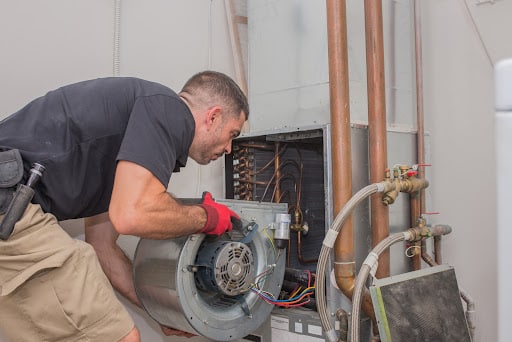Texas is not immune to hot, muggy summer weather. Over the next 14 years, temperatures may rise an additional 3°F, and 100°F temperatures could double compared to 2000 to 2018.
With summertime coming around the corner, have you wondered about a commercial HVAC installation? An HVAC replacement can help you keep your employers and customers happy and comfortable, but a new unit can add plenty of other benefits.
Luckily, we have put together a complete guide on what a commercial HVAC installation will cost and how you can find the right one for your building, so keep reading for more information!
What Is an HVAC System?
HVAC stands for heating, ventilation, and air conditioning. It helps keep your building comfortable, regulates humidity levels, and provides adequate ventilation.
Air filtration and ventilation are critical for keeping out pathogens and allergens. Regularly replacing your air filter will also help prevent dust and allergens from accruing within your building and nagging customers and employees.
HVAC Upgrade Costs
If you consider purchasing a commercial HVAC unit, you might experience higher costs than pre-pandemic rates. Supply chain demands and labor shortages have created a unique problem that has caused many industries to increase their prices.
In 2021, HVAC unit prices increased by nearly 15%, and the rising demand for HVAC units has put the industry under an all-time strain. HVAC system installations have risen nearly 7.5%, and it is not showing signs of slowing down.
Commercial HVAC Installation Factors
There are a few considerations that go into the total price of an HVAC upgrade, including:
- Labor
- HVAC type
- Square footage
- SEER rating
- Permits
- Inspections
- Removal
Choosing a contractor solely based on price estimates is not the way to go in a commercial building. Many of these contractors might be uninsured and put your building, customers, and employees at risk. Instead, don’t be afraid to get a few price estimates and then ask about an HVAC contractor’s expertise, qualifications, and licensure.
It is also helpful to check out their online customer reviews and read through their website to see if they have the services you are after.
How Big Is Your Building?
Your building’s size plays a significant role in your HVAC unit costs. One common myth is that a bigger HVAC or air conditioning unit will provide better cooling and ventilation. When HVAC units are too big, it can strain the system and lead to poor ventilation and humidity control.
When looking at an HVAC replacement, you’ll likely come across the term: British thermal units (BTUs). This is essentially the strength of an air conditioning or HVAC system, and larger rooms will need closer to 10,000 to 12,500 BTUs.
The best way to determine your building needs is by calling on the professionals to measure and scope building size, usage, and occupancy.
SEER Rating
The Seasonal Energy Efficient Ratio (SEER) rating is the numeric value given to your HVAC unit for energy efficiency. An HVAC unit will take up a large portion of your energy bills in a commercial building. You can expect a new HVAC unit to consume almost half of a building’s energy needs.
Lower SEER units will save you a few thousand dollars, but it will eat into your monthly energy costs. Opting for a SEER rating closer to 24 (which is the highest) will cost near $6,000 but is more energy-efficient for your building. On average, larger homes and buildings will cost closer to $10,000 for an entire HVAC unit.
Unlike a home, your building may need more than one HVAC system, depending on the size.
HVAC System Types
HVAC system types for residential and commercial buildings are relatively the same, and you will hear many similar terms. The differences lie in size, placement, and drainage. Commercial heating systems and HVAC units are typically outside or on the roof, are larger, and have more drains.
You may need more maintenance on these larger systems to ensure your building’s temperature and humidity are comfortable and energy-efficient. Some of the standard commercial HVAC systems include:
- Single split
- Multi-split
- Variable air volume
- Constant air volume
- Heat pump
- Rooftop
- Ductless
Single split or packaged units work better for small commercial buildings that don’t have a lot of space. Split systems work similarly to residential units and control temperatures in rooms via thermostats. Still, it can be challenging to regulate the temperature in larger units without filling up your rooftop with multiple HVACs.
Heat pumps are more energy-efficient and relocate heat from one region of your building to another. They don’t require separate units, and they can pull heat directly from the ground or air. Newer HVAC systems such as heat pumps, ductless, and multi-split units may cost more than traditional compact ones.
When Should You Call an HVAC Company?
Instead of spending countless hours searching ‘HVAC near me,’ you need a local company that offers 24/7 emergency services for your commercial HVAC needs. At Schneider Mechanical, we specialize in residential and commercial HVAC repairs, installations, and maintenance. Here are some common signs you should call a qualified HVAC technician:
- Short cycling
- Leaks
- Loud noises
- Blowing hot air
- Smells
Short cycling and smells can come from your commercial furnace or air conditioning unit. Rather than experiment with DIY projects, an expert technician can quickly diagnose and fix the problem. In some instances, repairs are more costly than an entire unit replacement, and the technician will be able to quote you prices for both so that you can make an informed decision.
Find Your Commercial HVAC Company
A commercial HVAC installation helps keep customers and employees comfortable, improves productivity, and can help filtrate harmful air pollutants. Upgrading your old unit can save you money and help your building become more energy-efficient.
Are you ready to get started? At Schneider Mechanical, we can help you through the process of new construction, cleaning, or emergent repairs. With the summer months sneaking up, now is a great time to get a pre-season air conditioning check.
Check out our website for a complete listing of our commercial HVAC services!


